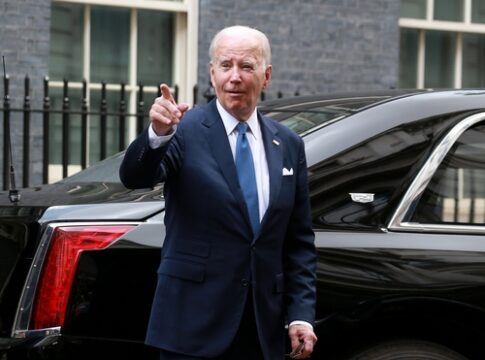Joe Biden’s judicial nominee Adeel Mangi faced fierce opposition that led to the withdrawal of his nomination to the U.S. Third Circuit Court of Appeals, raising questions about political allegiances and judicial impartiality. Biden reportedly wanted to appoint the first Muslim American to serve on a federal appeals court. Mangi’s association with controversial groups raised concerns.
Contentious Nomination Withdrawn
Senate Majority Leader Chuck Schumer halted the confirmation process for Adeel Mangi amid strong opposition. Several Democrats, including Senators Catherine Cortez Masto, Jacky Rosen, and Joe Manchin, expressed concerns over Mangi’s affiliations. Schumer struck a political bargain, deciding not to pursue votes for Mangi and three other appellate nominees, allowing the confirmation of a dozen Biden district court nominees instead.
The agreement means President-elect Donald Trump will be able to fill these appellate court positions upon taking office. Other nominees sacrificed in this deal included Ryan Park, Karla Campbell, and Julia Lipez. The decision was described by a Schumer spokesman as a strategic trade to advance judges with more secure votes.
Adeel Mangi is not qualified to be a federal judge because he supports organizations that celebrate people who kill law enforcement officers, hate Americans, and hate Jews.
It’s not Islamophobic to recognize that. It’s our job. pic.twitter.com/sQkUBte1io
— John Kennedy (@SenJohnKennedy) March 22, 2024
Concerns Over Radical Ties
Mangi’s association with groups deemed anti-law enforcement and anti-Israel was at the heart of the controversy. His role with the Rutgers Center for Security, Race, and Rights has been under scrutiny for anti-Israel rhetoric. Furthermore, his board membership with the Alliance of Families for Justice, noted for supporting notorious cop killers, exacerbated these concerns.
Senate Judiciary Committee Republicans, led by Senator Lindsey Graham, underscored Mangi’s affiliations as evidence of his unsuitability for the judiciary. Law enforcement organizations, particularly the Pennsylvania Fraternal Order of Police, were vocal in their dissent against Mangi, highlighting his connections with organizations perceived as sympathetic to violence against police.
I am calling on President Biden to withdraw his nomination of Adeel Abdullah Mangi to the U.S. Court of Appeals for the Third Circuit.
Mr. Mangi served as a member of the Board of Advisors for the Center for Security, Race, and Rights at Rutgers Law School, which has a deep… pic.twitter.com/ZnpKVC6ReF
— Guy Reschenthaler (@GReschenthaler) January 26, 2024
Political Maneuvering in Play
The political deal orchestrated by Schumer reflects the contentious environment surrounding federal judicial nominations. By retracting Mangi’s nomination, Schumer appeased certain factions within his party while enabling the confirmation of a larger number of district court nominees. This maneuver counterbalanced the loss of potential appellate court nominations for Republicans.
The response from the White House and Chuck Schumer’s office remained mute amid the controversy. Their silence speaks volumes about the complexities and sensitivities involved in judicial nominations. The outcome of Mangi’s nomination might set a precedent for future confirmations where candidate affiliations with polarizing organizations could play a decisive role.


